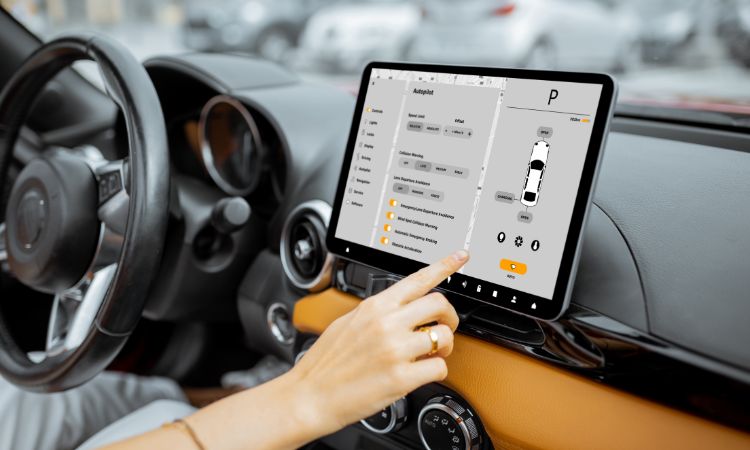The global automotive industry is undergoing a revolutionary transformation with the rapid adoption of electric vehicles (EVs). Central to the seamless operation of electric vehicles is the Electric Vehicle Communication Controller (EVCC), a crucial component that ensures efficient communication between the EV and the charging station. As the global push toward a greener and more sustainable future intensifies, the EVCC market is expected to experience substantial growth in the coming years. Valued at USD 130.40 million in 2023, the Electric Vehicle Communication Controller Market Size is projected to grow at an impressive CAGR of 35% between 2024 and 2032, reaching USD 1,943.15 million by 2032.
Key Benefits of Electric Vehicle Communication Controller
- Seamless Charging Experience: EVCCs enable smooth communication between EVs and charging infrastructure, providing a unified interface for charging, authentication, and billing. This ensures a hassle-free charging experience for EV owners.
- Enhanced Safety: EVCC systems are designed to comply with international safety standards, ensuring that the communication between the EV and the charging station is secure and error-free. This minimizes the risk of malfunction or power surges during the charging process.
- Energy Efficiency: The EVCC plays a critical role in managing the power flow during the charging process, optimizing energy transfer, and reducing wastage. This helps lower overall electricity consumption and promotes sustainable energy usage.
- Support for Smart Charging: With increasing focus on smart cities and smart infrastructure, EVCCs offer support for advanced charging technologies such as Vehicle-to-Grid (V2G) systems, allowing bi-directional flow of electricity between the EV and the grid. This opens up new opportunities for energy management and grid balancing.
Key Industry Developments
The electric vehicle communication controller market has witnessed several significant developments in recent years:
- Development of V2G Communication Protocols: Companies have started to focus on integrating V2G technology, enabling the use of EVs as energy storage devices that can feed power back into the grid during peak hours.
- Collaborations Between Automotive and Tech Companies: Partnerships between automotive manufacturers and technology firms have been increasing, with the goal of developing advanced EVCC solutions. For example, Bosch and Daimler have been working together to develop communication controllers that support autonomous EV charging.
- Focus on Standardization: Industry players are increasingly adopting standardized communication protocols such as ISO 15118, which governs communication between EVs and charging stations, to ensure interoperability across different regions and charging networks.
Driving Factors
- Government Initiatives and Incentives: Governments worldwide are introducing incentives and subsidies for the adoption of EVs, which in turn drives the demand for EVCCs. Regulations supporting the development of charging infrastructure further boost the market.
- Growing Electric Vehicle Adoption: The global automotive market is witnessing a surge in demand for EVs, driven by environmental concerns and advances in EV technology. As EVs become more popular, the demand for communication controllers to manage the charging process is rising rapidly.
- Development of Charging Infrastructure: The expansion of charging networks, particularly in urban areas, is pushing the need for advanced communication controllers to support a wide range of charging standards and ensure seamless operation across different charging stations.
COVID-19 Impact
The COVID-19 pandemic had a mixed impact on the electric vehicle communication controller market. Initially, the market experienced disruptions due to supply chain challenges and a slowdown in manufacturing activities. However, the pandemic accelerated the shift towards cleaner energy solutions, with many governments reinforcing their commitment to electric mobility. As economies recover, the demand for EVs and associated technologies, including EVCCs, is expected to rebound strongly, especially with the growing focus on sustainability.
Restraining Factors
- High Initial Costs: The development and integration of advanced EVCC technologies require significant investment, which can act as a deterrent for smaller players in the market. The initial cost of setting up EV charging stations equipped with communication controllers can be prohibitive.
- Lack of Standardization: While efforts are being made to standardize communication protocols, variations in charging standards across regions can pose a challenge to market growth. Ensuring interoperability between different charging stations and EV models remains a hurdle.
- Technological Complexity: The integration of advanced communication technologies in EVCCs requires specialized expertise. A lack of technical know-how can slow down adoption, particularly in developing markets.
Market Segmentation
The global electric vehicle communication controller market is segmented based on:
- By System:
- Electric Vehicle Supply Equipment (EVSE) Communication Controller
- Onboard Communication Controller
- By Charging Type:
- Wired Charging
- Wireless Charging
- By Vehicle Type:
- Passenger Vehicles
- Commercial Vehicles
- By Region:
- North America
- Europe
- Asia-Pacific
- Latin America
- Middle East & Africa
Market Overview
The electric vehicle communication controller market is experiencing significant growth due to rising environmental concerns, advancements in EV technology, and increasing investment in charging infrastructure. As EV adoption accelerates, the demand for efficient and interoperable communication controllers will continue to grow. North America and Europe, with their established EV markets and strong regulatory frameworks, will be key growth regions, while Asia-Pacific, led by China, is expected to witness the highest growth in the coming years.
Trends
- Growth of Wireless Charging Solutions: The increasing popularity of wireless charging systems is driving the demand for EVCCs that support wireless communication protocols. Wireless charging offers convenience and efficiency, reducing the need for physical connectors.
- Integration with Smart Grids: EVCCs are increasingly being integrated with smart grids, enabling energy management systems to optimize charging times and reduce energy costs. This trend is expected to gain momentum as smart city projects expand.
- Bi-Directional Charging: The adoption of bi-directional charging solutions, such as V2G technology, is expected to rise, allowing EV owners to sell excess power back to the grid. This creates new opportunities for EVCC manufacturers to develop controllers that support this functionality.
Regional Analysis/Insights
- North America: The United States leads the EVCC market in North America, driven by strong government support for electric mobility and the expansion of charging networks. The presence of major automotive companies also contributes to the region’s growth.
- Europe: Europe is a key market for EVCCs, with countries like Norway, Germany, and the UK leading EV adoption. The region’s stringent emissions regulations and strong focus on renewable energy will continue to drive market growth.
- Asia-Pacific: China is the largest market for electric vehicles, making Asia-Pacific the fastest-growing region for EVCCs. The Chinese government’s aggressive push for electric mobility and investment in charging infrastructure will drive demand for communication controllers.
- Latin America and Middle East & Africa: These regions are expected to witness slower growth due to lower EV adoption rates. However, increasing investments in EV infrastructure could drive future demand.
Top Impacting Factors
- Technological Advancements: Continued innovation in communication technologies will enhance the efficiency and safety of EVCC systems.
- Government Regulations: Supportive policies and incentives for EV adoption and charging infrastructure development will drive market growth.
- Consumer Demand: The growing popularity of EVs will increase the need for reliable and efficient communication controllers.
Target Audience
- EV Manufacturers
- Charging Station Operators
- Automotive Component Suppliers
- Government Agencies
- Energy Providers
Major Key Players
- Vector Informatik GmbH
- LG Innotek
- AKKA Technologies Group
- Robert Bosch GmbH
- Others
Opportunities
The growing focus on sustainable energy solutions presents vast opportunities for companies to develop innovative EVCC systems. The rise of autonomous vehicles and smart infrastructure also offers new avenues for growth.
Challenges
The major challenge lies in standardizing communication protocols across regions, ensuring interoperability between various EV models and charging stations.



